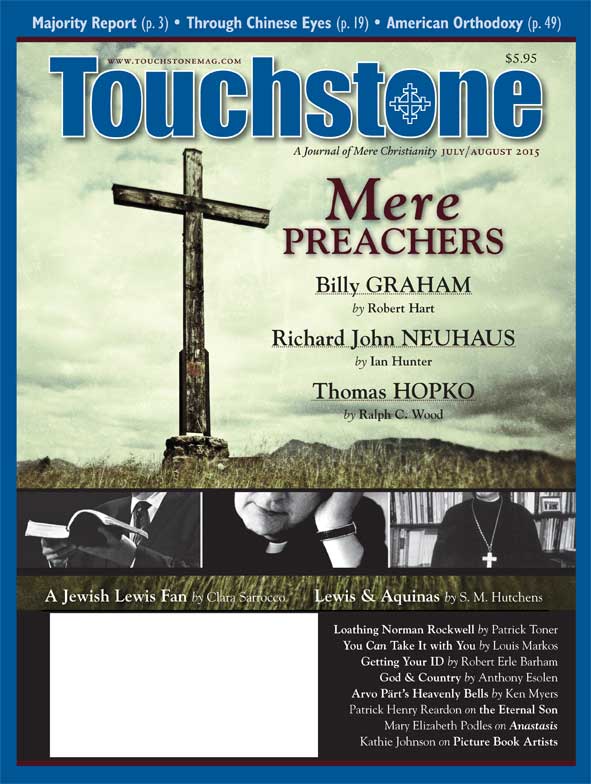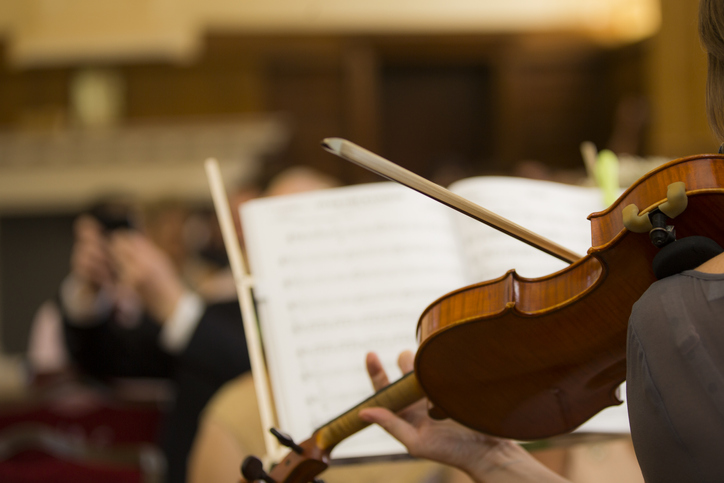View
Higher
End Gifts
Louis Markos on How You Can Take It with You
As they wend their way down into the fifth circle of the inferno, Dante and Virgil catch their first sight and smell of the river Styx. In the annals of Greek mythology, Styx is usually described as a swiftly flowing stream, but in Dante's conception of the underworld, it becomes a black and stinking marsh. It becomes, in short, an appropriate dwelling place for the souls of the sullen. Virgil explains:
". . . now you may see
the souls of those whom wrath has overcome,
and you should take it for a certaintyThat underwater here are souls who sigh
and make the river bubble to the top,
as you may see wherever you turn your eye.Stuck in the mire they say: 'Sullen we were
up in the sweet air gladdened by the sun,
bearing a sluggish smoke within our hearts.Now we are sullen in this black bog here.'
Such is the hymn they gargle in the throat.
They cannot get the words out whole and clear."(Canto VII; translator: Anthony Esolen)
Such is the eternal state of those who squandered their gifts and wasted their talents, who lived empty, meaningless lives of ignorance and sloth. Though they spent their mortal years in the constant presence of God's wisdom, grace, and love—symbolized throughout the Divine Comedy by the sun—they neither matured nor bore fruit. Rather, like Esau the buffoon, who bartered his birthright for a mess of pottage, they traded in their God-given potential for a little sleep, a little slumber, a little folding of the hands. Sluggish, torpid, apathetic, they resemble nothing less than human extensions of that foul-smelling, stagnant bog that will be their home for eternity.
In many ways, the sullen, poised as they are in the very middle of the inferno, may serve as a perfect metaphor for the entire realm of hell. For Dante, hell is not so much a place of pain as it is a place of sadness, waste, and futility. The inferno is the sewer of the universe; all the refuse of the world, the guilt and the sin, the broken dreams and blighted hopes, runs ever downward until finally it collects in the bowels of that great abyss that stretches and yawns just beneath our feet. Indeed, Styx itself, like all the rivers of the inferno, is the product of those bitter tears of humanity that have flown and continue to flow from the decayed and decadent kingdoms of our world (Canto XIV).
In one way or another, all the souls in the inferno have wasted their gifts; like the foolish servant in the parable, they made the cowardly and despairing choice to bury their talent underground, and by so doing, both violated their master's trust and frustrated their own purpose and worth.
In Dante's economy, we can squander our gifts in at least three ways: (1) by failing to become involved in the forward motion of history; (2) by refusing to work toward the betterment of our fellow man; and (3) by abdicating our duty—and privilege—to grow not only into deeper, more spiritual Christians but also into fuller, more integrated human beings. Category one I shall defer to another time and place; category two I shall overlook, not because I think it less important, but because it has already been treated copiously by my theological and literary betters. But category three—so often ignored, so often deemed irrelevant to the true Christian life—shall be the special province of this essay.

The Telos of Talent
Too often, Christians feel that the sole reason we were given our gifts and talents is so that we may use them to serve others, whether they be members of our family, our church, or our community. This, of course, is true, and represents a sacred trust, but it is not the whole picture. If our gifts were given us only for service, then woe to us if we are unappreciated.
Those who think of their gifts as perpetually directed outward soon come to base their growth, their pride, and their very worth on the criticisms or accolades of others. They judge the success of their sermon on how many people come forward at the invitation, or the success of their singing on how many are moved in the pews. They become frustrated when people do not offer them thanks and praise, for that is the measure by which they judge themselves.
How many of us have practiced for days a speech or a song or a musical piece, or worked long hours on a meal or a painting or a poster, or spent long years on a degree or a career or a relationship, only to find our efforts greeted with ambivalence or envy or scorn? Do we then nurture our talents only for the pleasure of others? Is there no other standard by which to measure our growth and our success?
I think there is, and I think it resides partly within. Like the proverbial climber who ascends to the top of the mountain merely because it is there, we should sing our songs merely because we can. To take a piece, to practice it, to perfect it until our voice becomes a refined and pure instrument for giving shape and reality to what once was but silent notation on a page is to do something mighty and profound. I don't mean art for art's sake exactly; I mean rather that something happens deep in our soul and perhaps in the universe itself when we do or make or perform something to the very best of our ability.
Obedience, zeal, faith, love. All of these are involved when a man completes a project that required him to use his full battery of God-given talents—as long, of course, as that project is not an evil or immoral one. We often feel pity for great composers whose genius was not appreciated till after they were dead, but we must not let such pity fool us into thinking that their lives were therefore devoid of joy. There is a rich, deep joy that seizes the soul of all artists—no matter how great or insignificant their talent may be—when they wrestle an idea out of their mind and capture it, whole and alive, on a page or a canvas or a series of notes: a joy that has little to do with the praise that their work receives.
And that joy is not limited to artists. Whether the talent employed is cooking or sewing or gardening, carpentry or pottery, dancing or acting, the joy is the same. A joy of captured harmony, of perfect balance, of completion and wholeness and consummation, a joy that finds its fullest expression in Jesus' dying words: it is finished. The root of the Greek word that we translate as "finished" is telos, a word that means both end and purpose. To see a talent through to its final incarnation is to do more than simply finish a task; it is to reach a higher end, achieve a fuller purpose, to move one step closer to that being we were created to be.
I believe that had we remained in the Garden, we would all have painted like Leonardo and sculpted like Michelangelo, written like Shakespeare and composed like Beethoven. We would have had the beauty of Helen, the strength of Hercules, the courage of Achilles, and the craft of Odysseus. Everything from the multi-faceted wisdom of Solomon to the simple but profound faith of Mary would have been ours for the asking. But we fell from that glorious perfection into sin and division. Our gifts and talents were scattered, and our reason subjected to a futility that it was never meant to know.
Still, seeds of that perfection are yet to be found in each of us. No, we are not, as Emerson would have it, "gods in ruins," but we are reflections—part substance, part shadow—of that ideal pair who dwelt, if but briefly, in the Garden. And thus, though our talents and our reason alone can never restore us to what we once were, they can serve as a light to help guide us back to our original home. The mere exercise of our gifts will not, of course undo the results of the Fall, but our talents, the broken shards of that lovely creation which we once were and shall be again, can, when properly used, restore us in part to our primal state, even as they direct our eyes upward to the true Author and Finisher of our faith.
Becoming Sub-Creators
The proper use of our talents, then, may afford us a backward glimpse of Eden. But what of heaven? Does the exercise of our gifts on earth prepare us in any way for paradise? I do not refer here to heavenly rewards or robes of righteousness. I do believe that our good deeds on earth will win us the applause of God and the saints—though, of course, grace alone will get us through the Gates—but that is not the context or import of my question.
To ask if our college degree will get us a job as a teacher is not the same as asking if our college education will truly prepare us to be a teacher. What interests me here is whether or not a Christian, by making a full and proper use of his God-given talents—in both the sacred and the secular spheres—can so increase in maturity (spiritually, intellectually, emotionally) as to become more fully prepared for that higher existence that awaits us in heaven. Or to put it another way, is there some aspect or by-product of our work that will remain with us even in heaven?
To answer that question, I would propose that we must ask a related question: What is it in a man that survives death? And in response I would say: it is his personality, replete with his values and beliefs and the qualities of character and mind that he cultivated in this life. Whatever contributes to making a person what he forever will be, then, has eternal significance. We shall take with us more than we sometimes think.
Our secular studies and activities don't just result in things, nor do they simply function in our lives as a fine suit of clothes to be taken off when we go to bed. They change us from within, serving either to build or to diminish our character. Americans are fond of saying that a person is what he eats—a rather ridiculous notion, since food is one of the few things that our body expels. No, it is not, to paraphrase Jesus, what goes into us that makes us who we are, but what comes out of us.
Every time we put our gifts to work, every time we shape external matter by that internal touchstone, that half-intellectual/half-spiritual mold that is the very breath and spirit of the talent God gave us, we become a slightly different person: sometimes worse, but more often better. Each time we make a proper use of one of our gifts, even if the context of that use is secular, we become fuller and rounder persons and increase our human potential—which is to say, we become more of what God intended us to be. It is our gifts that enable us to create, to shape, and to build, and as such, they are part and parcel of that soul-self which was created, so Genesis 1 tells us, in God's image.
We were all fashioned in the image of a God who, in the beginning, made beauty out of chaos, a God who delights in the arts of creation and who is in the business of transforming disorder and meaninglessness into meaningful order. Our talents should inspire us to mold and shape objects and ideas that partake of that beauty, harmony, and purpose with which God filled his universe. Whenever we do so, I would argue, we share in God's creative nature—become, to borrow a pregnant phrase from J. R. R. Tolkien, sub-creators—and thus promote within ourselves the kind of growth that will reach its apex in heaven.
Of course, this is not to suggest that whenever we use our gifts we are furthering this spiritual growth. In the deepest parts of hell, Dante meets several sinners—Ulysses chief among them—whose sin was not that they wasted their gifts but that they misused and perverted the gifts that were given to them by God. (Ulysses uses his gift for rhetoric, not to inspire his men toward virtuous behavior, but to seduce them into joining him on his fool's journey into the West.)
As is the case with nearly everything in our world, gifts are neutral; they can be used for good or ill: to promote God's glory or to fashion idols, to raise our spirit upwards toward the angels or pull it downwards to the beast. Let us strive always for the higher ends. •
Louis Markos , Professor in English and Scholar in Residence at Houston Baptist University, holds the Robert H. Ray Chair in Humanities. His 19 books include Lewis Agonistes; Restoring Beauty: The Good, the True, and the Beautiful in the Writings of C. S. Lewis; On the Shoulders of Hobbits: The Road to Virtue with Tolkien and Lewis; and From A to Z to Narnia with C. S. Lewis.
subscription options
Order
Print/Online Subscription

Get six issues (one year) of Touchstone PLUS full online access including pdf downloads for only $39.95. That's only $3.34 per month!
Order
Online Only
Subscription

Get a one-year full-access subscription to the Touchstone online archives for only $19.95. That's only $1.66 per month!
bulk subscriptions
Order Touchstone subscriptions in bulk and save $10 per sub! Each subscription includes 6 issues of Touchstone plus full online access to touchstonemag.com—including archives, videos, and pdf downloads of recent issues for only $29.95 each! Great for churches or study groups.
Transactions will be processed on a secure server.
more from the online archives

37.5—Sept/Oct 2024
Why Law Schools Can't Teach Law
A sidebar to How Law Lost Its Way by Adam MacLeod
calling all readers
Please Donate
"There are magazines worth reading but few worth saving . . . Touchstone is just such a magazine."
—Alice von Hildebrand
"Here we do not concede one square millimeter of territory to falsehood, folly, contemporary sentimentality, or fashion. We speak the truth, and let God be our judge. . . . Touchstone is the one committedly Christian conservative journal."
—Anthony Esolen, Touchstone senior editor










